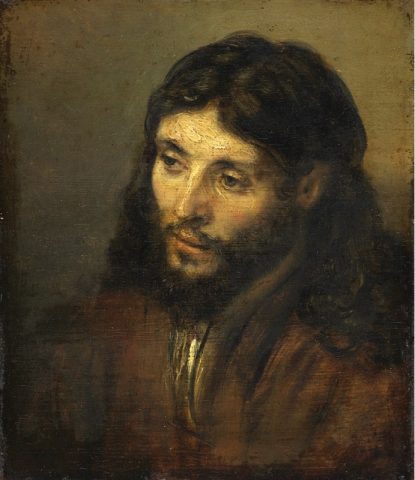Faith in Humanity, by Michael Pakaluk

Bishop Strickland . . . Mary, Mother Of God And The Church
February 18, 2020
The Pope’s Men, by Rodney Pelletier
February 18, 2020
*Image: Head of Christ (Christuskopf) by Rembrandt van Rijn, c. 1645-50 [Gemäldegalerie, Berlin]
By Michael Pakaluk, The Catholic Thing, Feb. 18, 2020
Michael Pakaluk, an Aristotle scholar and Ordinarius of the Pontifical Academy of St. Thomas Aquinas, is a professor in the Busch School of Business at the Catholic University of America. He lives in Hyattsville, MD with his wife Catherine, also a professor at the Busch School, and their eight children. His latest book, on the Gospel of Mark, The Memoirs of St Peter, is now available from Regnery Gateway. He is currently at work on a new book on Mary’s voice in the gospel of John.
![]() “If I do not go away, the Advocate will not come to you,” says Jesus to the Apostles at the Last Supper, according to John (16:7). “As if He said plainly,” writes Gregory the Great, “If I withdraw not My body from your eyes, I cannot lead you to the understanding of the Invisible, through the Comforting Spirit.”
“If I do not go away, the Advocate will not come to you,” says Jesus to the Apostles at the Last Supper, according to John (16:7). “As if He said plainly,” writes Gregory the Great, “If I withdraw not My body from your eyes, I cannot lead you to the understanding of the Invisible, through the Comforting Spirit.”
It’s likely you haven’t thought much about this line. I know I haven’t. The idea that absence, separation (indeed, death), lack of visibility, operating on a spiritual not a verifiable basis – that these things are often better for us – is a fascinating theme, and much needed in our culture of pragmatism and visual media. History and tradition, for example, and the whole “deposit of faith” can only be seen “spiritually.” Indeed, the Spirit gives this “understanding of the invisible” to the Church – and even, in some times of crisis, as Newman pointed out, primarily to the laity.
But even more interesting is what St. Augustine says about the line. He connects the promised coming of the Spirit, after the Resurrection, to an earlier coming down of the Spirit, over Mary when she conceived, at the Incarnation. In both cases, he says, the Spirit is connected with hiddenness. With the first coming, the divinity of Christ was hidden in his humanity. But when Jesus returns to the Father, then the humanity of Christ becomes hidden as well. In both cases, Christ “hides,” so that the Spirit can reveal. ….
Read more here https://www.thecatholicthing.org/2020/02/18/faith-in-humanity/




